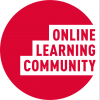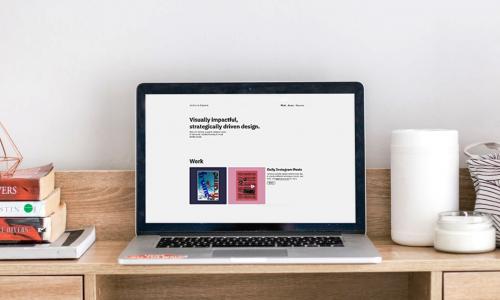
If you want to nab that dream job, your first step is to get an interview. But in order to get that interview, you'll need to capture the employer's attention. Your résumé is your first chance to make a good impression to a potential employer. A poorly-written résumé will almost certainly be put in the "No" pile.
Recently, I've worked with Kate Aldcroft, Career Advisor at SFU Business Career Management Centre, in getting my résumé updated. Kate has had a few years of experience as a recruitment manager before coming on board with SFU Business. Because her insights have helped me tremendously, I've asked her to share some of the most common mistakes she has seen applicants make with their résumés.
Make sure you avoid these common mistakes that Kate identified (and the additional "don'ts" below) to increase your chances of getting that interview!
1. It's Not Customized
There's a misconception that only cover letters need to be tailored for every position. The fact is that a generic résumé will not meet the needs of all potential employers. For example, your "Profile" needs to match the qualifications posted for a job. Since each employer has different needs based on their corporate culture or history, sending them a generic résumé may give them the impression that you're not the right person for the job.
2. There are Grammatical and Spelling Errors
Be attentive to every small detail in your résumé. If you rely on Spell Check on MS Word, beware: the software catches most errors, but it may not catch common conventions.
3. You Didn't Mention Your Transferable Skills
As a student, you might find yourself applying for jobs that you haven't had previous experience with. Communicate clearly what skills from your previous positions transfer to the posted position. Similarly, telling employers what you've done is generally not good enough. Communicate your accomplishments by using action verbs such as exceeded or increased. Quantify your achievements if possible.
4. You Didn't Mention Extracurricular Activities
Kate emphasized that employers value volunteer work. Employers are also eager to know if you've been involved in your community or around your campus. Your work experience alone will not get you that interview, so don't short change yourself by omitting extra-curricular activities.
5. The Formatting is Poor
Remember, you only have a few minutes to convince potential employers to invite you in for an interview. Make sure you guide your readers' eyes by using clean, attractive formatting. If you're not sure if your formatting is good enough, print out your résumé and read it as if you've never seen the document. You can also ask a friend or a career counselor to go through your printed résumé to see what other formatting changes you can make.
Although these top five reasons are common, below are some other resume don'ts to keep in mind:
Don't Exaggerate
You'd want to communicate your achievements, but you should also make sure that you're not exaggerating. If you've accomplished a task with a team, be specific with your contributions and explain how your work contributed to the overall group objective. However, be very clear that it was a team effort. Also, Kate cautioned that you might be asked to justify numbers in your résumé, so be prepared to explain achievements that you've quantified.
Don't Include an "Objective"
The use of an "objective" section is outdated and impractical. Firstly, it may be redundant: if you've applied for a position, then your objective was to land that position. On the flip side, having an objective that's too broad - e.g. "To get a job in Marketing, Communications, PR or Event Planning" - may communicate lack of focus and may thus turn off potential employers. Kate recommended including "Profile" or "Skills Summary" instead of an "Objective". In this section, include a customized list of achievements and skills that match what the employer is looking for.
Don't Use Personal Pronouns
As a general convention, you'd want to avoid pronouns such as I or my. As a document, your résumé is strictly only about you, so there's no need to use personal pronouns.
Don't Include Your High School Information
If you are currently in university, it follows that you've finished high school. So, there's no need to include this information in your résumé. According to Kate, you should include information from your high school only if a.) You've accomplished something extraordinary during high school, or b.) You have work experience from high school that's less than 5 years old.
Don't Include References
You should bring a list of references to the interview that you can leave with the employer - however, a list of references shouldn't be in your résumé. Also, save some space in your résumé by omitting the line "References available upon request". Employers assume that you will provide references when they request it.
Don't Use Fancy Fonts
Use a clean font. Use a font size that's not too big or too small. Avoid using a font size of less than 10. You should use different font sizes to highlight certain sections of your résumé, but Kate recommends avoiding the use of more than three different font sizes.
Don't Use Contractions
Because you want to maintain a more formal tone in your résumé, avoid contractions such as don't, haven't and I've.
Don't Include a Link to Your Blog or Twitter
If you're one of the growing number of job-seekers who maintains a blog in order to enhance your online image, you might be tempted to include a link of your blog in your résumé. Kate, however, recommends playing it safe and not including the link to your blog in your résumé. (An exception to this rule might apply if you're applying for a position that directly relates to blogging or social media.)
Instead of providing the URL to your blog or to your Twitter account, Kate recommends providing your LinkedIn account in your résumé. In your LinkedIn profile, you may choose to include the links to your blog or to your Twitter account if you believe that these will enhance your image.
Don't List an Unprofessional Email Address
Some of us have an email address that reflects our interests (e.g. ProudStarWarsGeek@hotmail.com). In your contact information, it is best to use a more professional email address such as one that includes your name. In a competitive job environment, every little detail counts. Impress potential employers by avoiding the pitfalls outlined here and increase your chances of getting an interview!
Do you have other don'ts to share? Post them in the comments below.
Beyond the Blog
-
Visit the Resume Gallery to gain inspiration for your own resume.














